What Shoes Should Your Baby Be Wearing?
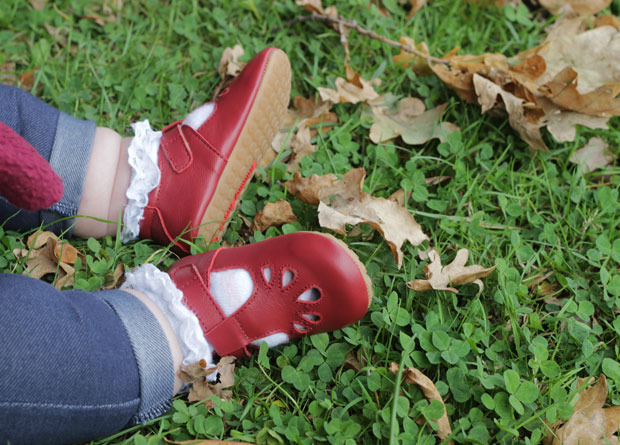
What Shoes Should Your Baby Be Wearing?
What kind of shoes should your baby be wearing as he or she learns to walk and toddle? Baby footwear brand Dotty Fish have been working with The London Podiatry Centre, which is one of the most advanced podiatric clinics in the world. They have looked closely at the effects of soft-soled footwear on children who are learning to walk and taking those special and crucial first steps.
Dotty Fish have always been passionate about baby foot health and are keen to get the message out to parents on the benefits of wearing soft sole shoes.
“We want to give people the information needed to make an informed choice when buying footwear for young children. We want to create a movement, one that looks at what is best for babies’ feet.”
Helen Chapman, founder of Dotty Fish
This is the first time The London Podiatry Centre have ever worked with a baby shoe brand to analyse a child taking those early steps wearing a soft sole baby shoe.
“We are an evidence-based clinic and we use very advanced technology to help us determine if something helps biomechanically. So far the results have been encouraging”.
Ron McCulloch, Consultant Podiatric Surgeon and Director at The London Podiatry Centre
For many years there has been a perception that a baby’s first shoe should be a structured shoe that will help keep them steady on their feet, but this is a misconception. The best thing for a baby learning to walk or a toddler who has just started walking is actually bare feet but that’s not always practical outside the home.
The next best thing is to have an extremely lightweight flexible shoe with a thin, non-slip sole that protects a baby’s delicate foot and prevents slipping. This type of shoe will still give them all the benefits of walking barefoot whilst protecting their feet and allowing them to feel the floor beneath them. These are the kinds of shoes that Dotty Fish specialises in.
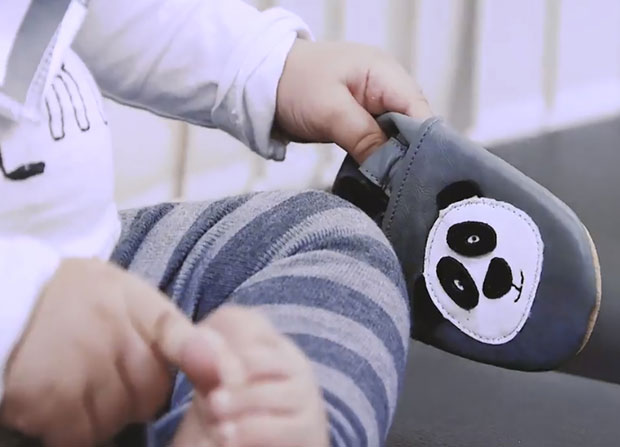
Shoes for young babies and children need to be:
- Flexible so feet can move naturally
- Lightweight allowing for natural ankle, knee and hip movement
- Wide around the toes to allow the feet to spread when standing
- Thin soled so children’s toes can grip the floor in the same way as if they were barefoot
- A snug fit so they don’t come off but without restricting movement or growth
- Made from a breathable material as babies’ feet sweat 2-3 times more than adults’ do
“We want to educate parents and childcare professionals on why soft soled shoes are better for developing feet. The anatomy of a baby or toddler’s foot is different from an adult and we need to take this into account when buying those first few pairs of shoes.
A baby’s foot doubles in size between birth and the age of 4 years. By their first birthday their foot is almost half the size it will be as an adult. Babies have 22 partially developed bones in their feet that are mostly cartilage while adults have 26 bones. This rapid growth and development needs to be kept in mind when choosing which shoes to buy.”
Helen Chapman, founder of Dotty Fish
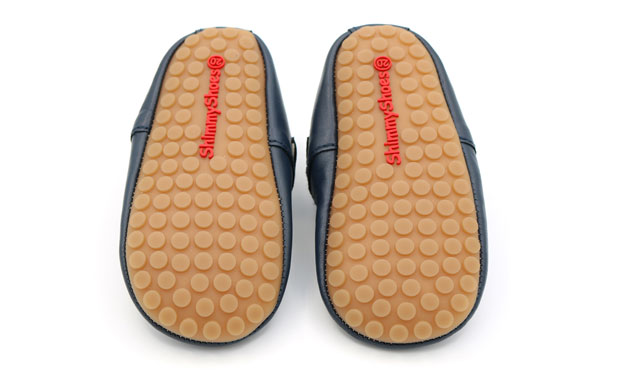
As children’s feet grow and develop, they need more room to spread and move in as natural a way as possible. Soft, flexible shoes are ideal as they do not impede natural foot movement and this allows development to take place unhindered.
“A key thing is actually that we don’t want to see any change between bare feet and the shoe, we just want to see normal natural function and to make sure that it’s not impeded by footwear and so far the results are encouraging.”
Ron McCulloch, The London Podiatry Centre
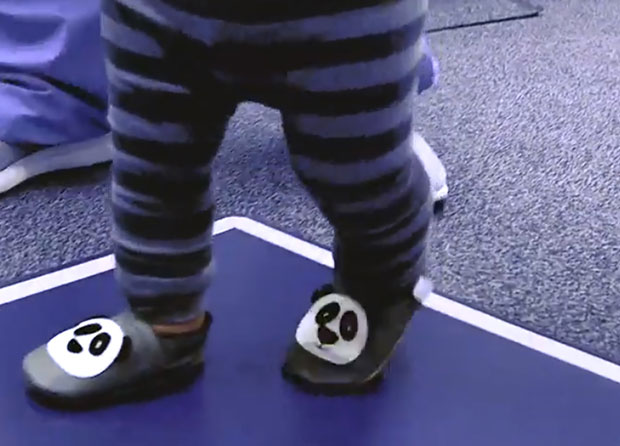
More about the testing:
- Testing at the London Podiatry Centre was initially performed on a Tekscan pressure mat to measure a baby’s postural sway or balance. They tested the effects of the shoes on a baby’s balance as well as when not wearing shoes at all. The results of this test were very positive for soft soled shoes. It is believed that this is because the shoe gives increased contact points around the foot, making babies more aware of their feet. This feedback to the baby’s brain is very important for development and structured shoes may interfere with this and are therefore not always recommended.
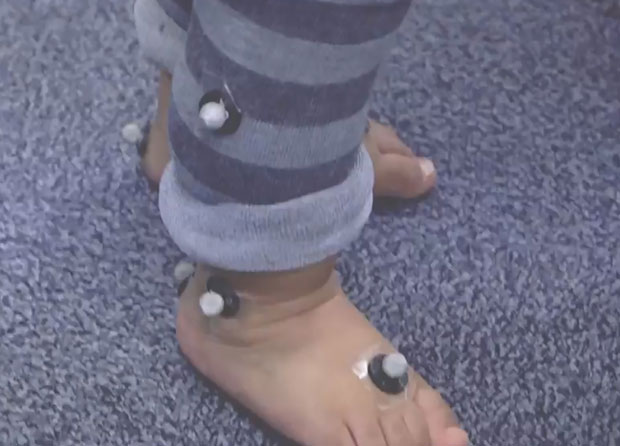
- Sensors were also attached to the baby’s feet, legs and hips and an 8-camera Vicon system was used to capture him walking with and without soft sole shoes. The resulting findings were overwhelmingly positive and really demonstrated the benefits of wearing soft soled shoes in those early years. An improvement in hip and knee symmetry was noticed when wearing the Dotty Fish shoes. The pattern of movement in the ankle was also much better when wearing soft soled shoes.
- Another key finding was that the soft sole shoes did not cause any disturbance in normal gait and in a number of areas it improved walking style. This may be as a result of the shoes improving a child’s sense of awareness by increasing the number of contact points between the foot and the floor. This was something that was stressed during testing, the aim is to see children walking as close to naturally as possible while reducing the risks of slipping and protecting their feet. Dotty Fish soft soled shoes definitely do this as borne out by the testing.
Read the full report here.
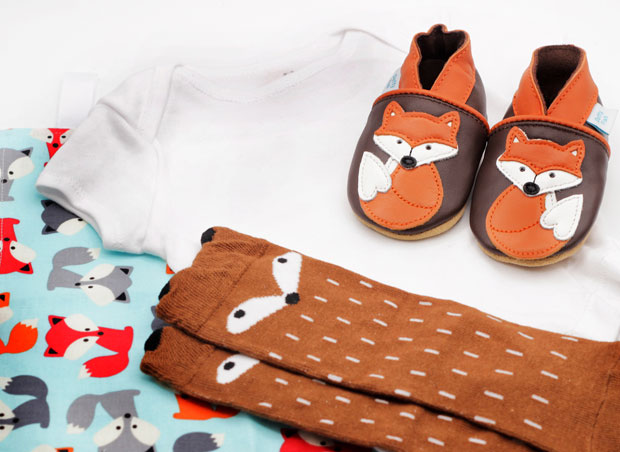
Dotty Fish have long known the benefits of soft soled shoes for babies and early walkers and always designed shoes that not only look good, but which are also good for growing feet. The London Podiatry Centre’s results are fantastic and have really helped reinforce their belief in the benefits of wearing a less structured shoe that allows a child new to walking to develop this skill naturally. These findings will really help give parents the information they need when choosing their child’s first shoes. Check out Dotty Fish’s baby and toddler shoes here.
In collaboration with Dotty Fish.




